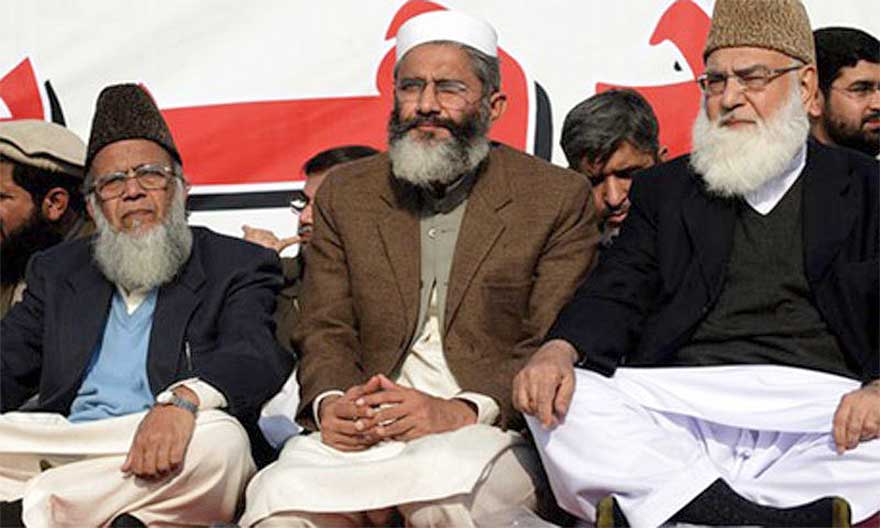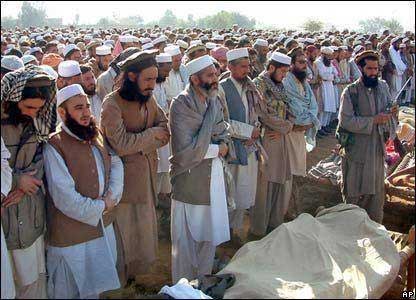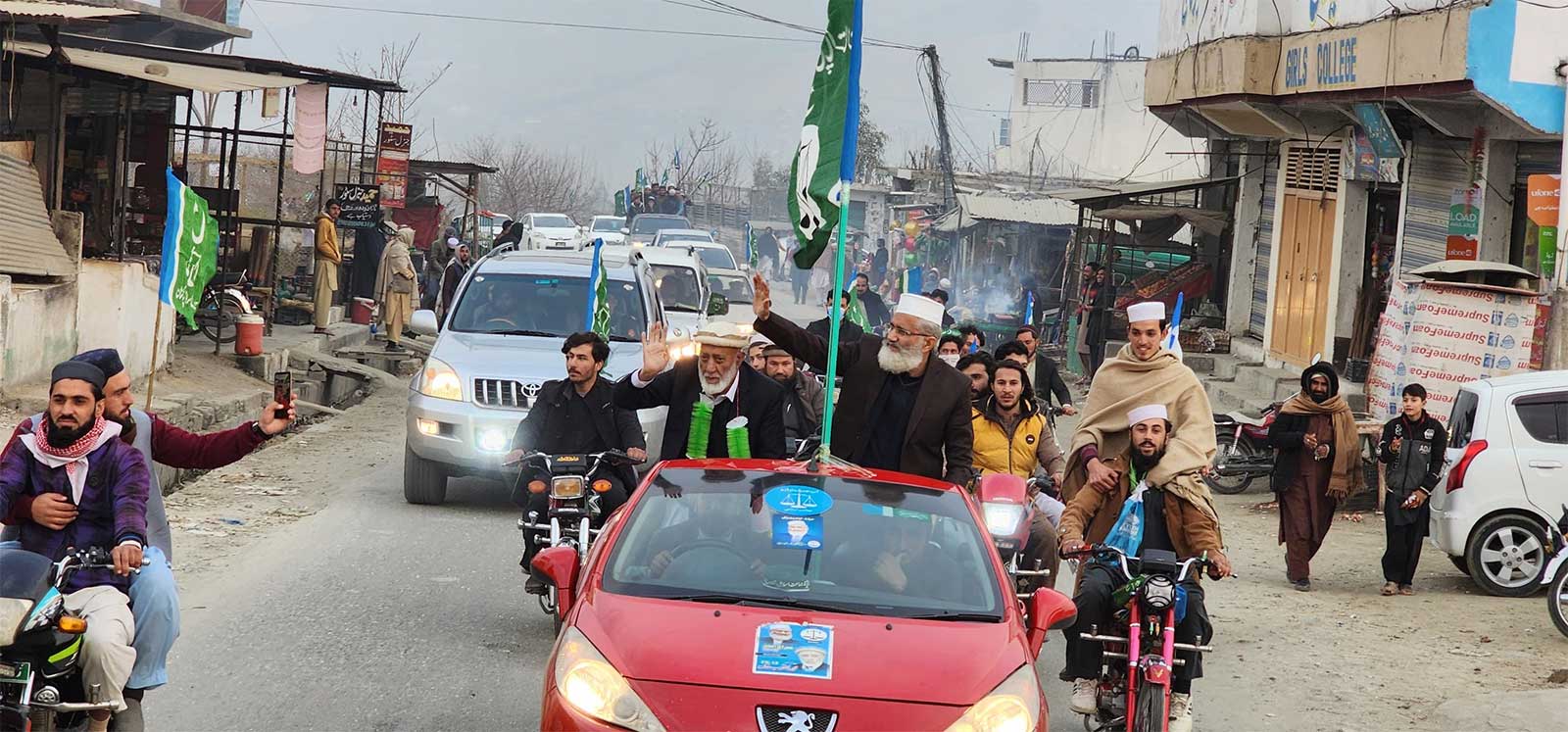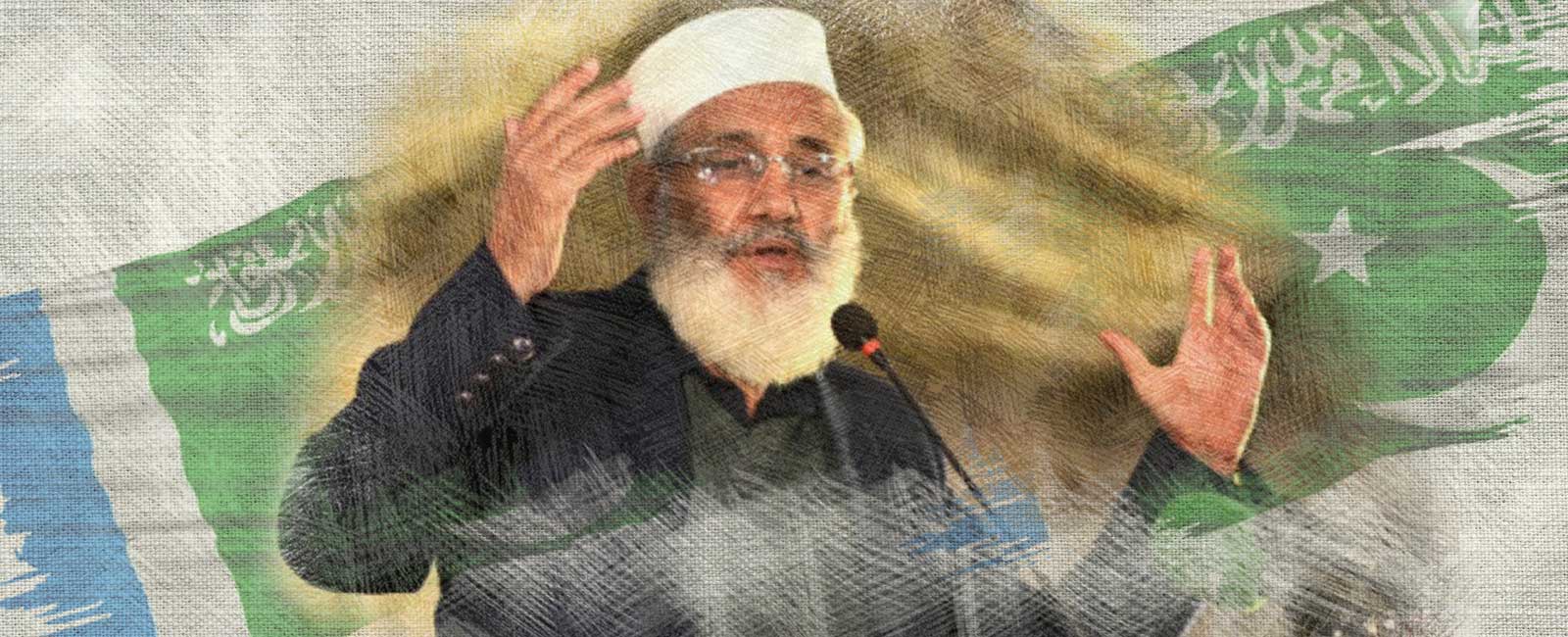Sirajul Haq: Can JI Ameer multiply party footprint in parliament?
Since assuming the leadership of the JI, Siraj has also adopted a policy in which he avoids joining hands with multiparty political alliances

When no political party was ready to shake hands with Imran Khan-founded Pakistan Tehreek-e-Insaf (PTI), Sirajul Haq-led Jamaat-e-Islami (JI) not only allied with it but also came close to winning the mayorship of Karachi, which reflects he can make smart political moves.
However, JI has yet to win the support of people in terms of votes.
When Sirajl Haq assumed the top office of JI as Ameer in 2014, his party was under the radar of the military establishment as his predecessor Syed Munawar Hassan was a staunch supporter of the militants fighting against the state of Pakistan in the name of Islam. At that time Imran Khan was leading a protest sit-in in Islamabad and Sirajul Haq jumped in as a mediator and made a failed attempt to resolve the issue.
Although he failed, he drew media attention. It was expected that he would help make his party acceptable to the masses. It was also anticipated that he would adopt a strategy so that he and his party would not be identified as supporters of militancy as well as the militants. Siraj, however, failed to dispel that impression. He and his party believe in dialogue with the defunct Tehreek-e-Taliban Pakistan (TTP) and consider the Afghan Taliban as their allies.
Back in 2015, I had a detailed interaction with Siraj, who was then dependent on the salary of the KPK Assembly and was living in a five-marla rented house with his three sons and 4 daughters. Even today things have not changed much. He has now shifted to his family home in his native town, Lower Dir, in Khyber Pakhtunkhwa (KP), where he lives in a joint family. Siraj has also a partnership with a private school located in KP and draws his salary from JI.

When he assumed the office of the JI Ameer, Siraj had to face the serious challenge of al Qaeda ideology, which carried away some of the JI workers. However, Siraj used to dismiss the impression that al Qaeda has ever been or is a challenge to his party.
"It was not and is not a challenge, if someone associates himself it does not mean that it is the policy of the JI,” Siraj told me back in 2015.
In that meeting, when I pointed out the incidents in which his party members either joined al Qaeda or gave shelter to its leadership, he said: "Even the existence of al Qaeda is a question as we know this organisation only through media".
When asked if he ever had a meeting with Osama Bin Laden (OBL), he denied with a big NO. When asked if he had ever met Ayman al-Zawahiri, he said: “I meet media men like you”. He had brushed aside my questions aimed at knowing his links with the controversial organisation.
When his attention was drawn to the fact that his picture with Moulvi Faqeer Mohammad, the leader of defunct Tehreek-e-Taliban Pakistan (TTP), was shown to the media in an Inter-Services Public Relations (ISPR) briefing in 2009 and later the same was shown to the parliamentarians during an in-camera session of the parliament by the military authorities soon after the May 2, 2011 US raid on OBL's Abbottabad compound, he narrated his side of the story.

He recalled that his picture was taken during a funeral prayer he led in Bajaur following a drone attack on a seminary which killed 83 innocent children right in the centre of the town. He said that he never knew Moulvi Faqeer Mohammad was there at the funeral. He said that all the bigwigs of the area had requested him to lead the funeral prayers. Siraj said when he first heard that his picture was shown by the military authorities in the in-camera session tagging him with the militants, he was disappointed.
Siraj said that there are pictures abound showing militants being garlanded by military officials, "so does that reflect on their friendship?" He said that it was an injustice that not a single member of the establishment ever contacted him for verification of this.
Nowadays, the JI keeps a distance from militancy; however, it continues to remain on the right side of the military establishment, while following its tradition rooted deep in history.
Siraj since assuming the leadership of the JI has also adopted a policy in which he avoids joining hands with multiparty political alliances.

“Now the JI looks more individual than ever, it's back to its original (status),“ one party leader told me. In the last five years Siraj-led JI kept criticising the rest of the political parties calling them corrupt, but these days the JI is intentionally avoiding criticising the PTI apparently to woo their voters. In the last national assembly (2018-23), the JI had only one member in the national assembly and they had one senator in the upper house.
In the upcoming national assembly elections, they have fielded a record 243 candidates on 272 seats. Likewise, a record 531 JI candidates are running for 596 provincial assemblies' seats. This move to field most of its candidates by Siraj-led JI might increase their presence in national and provincial assemblies.
The writer is a columnist and senior correspondent at Geo News, The News and Daily Jang. He posts @AzazSyed
— Header and thumbnail design by IMM Creative




